How are wood and other construction materials shaping the trade landscape in West Asia?
The construction materials trade in West Asia and the Middle East is witnessing a dynamic shift, fueled by increasing demand for essential commodities like wood, timber, plaster, sand, lime, and glass. Among them, the wood and timber market has become a cornerstone of construction and furniture manufacturing. The raw wood trade, particularly encompassing HS codes 440110 to 440500, is thriving due to growing urbanization and infrastructure projects in countries like the UAE, Saudi Arabia, and Turkey. Verified exporters and importers, leveraging B2B platforms, are streamlining supply chains to meet the demand for high-quality timber products. Plaster, specifically gypsum-based products like Plaster of Paris, is another critical material shaping West Asia"s construction industry. Its lightweight and cost-effective properties make it an essential component in infrastructure development. Similarly, sand and lime play irreplaceable roles in construction, with verified suppliers ensuring steady availability for projects ranging from residential complexes to megastructures. Structural materials like rebar, beams, bricks, cement, and concrete blocks are gaining traction as the backbone of West Asia’s booming construction sector.
Lightweight concrete blocks, in particular, are becoming a sustainable choice for modern building designs. The ceramic tile market is also expanding, with increasing exports to European and Asian markets reflecting its aesthetic and functional appeal. Glass, another key commodity, is undergoing transformation with the aid of B2B trade platforms that connect regional suppliers with global buyers. Verified listings are ensuring transparency and efficiency in the market. Aritral, an AI-driven B2B platform, simplifies the trading process for these commodities, offering product listings, direct communication, and AI-powered marketing solutions. By facilitating connections between verified suppliers and buyers, Aritral enhances market transparency and efficiency across the Middle East and West Asia. "
-
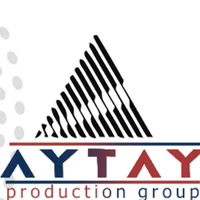 ایتای 3 months ago
ایتای 3 months ago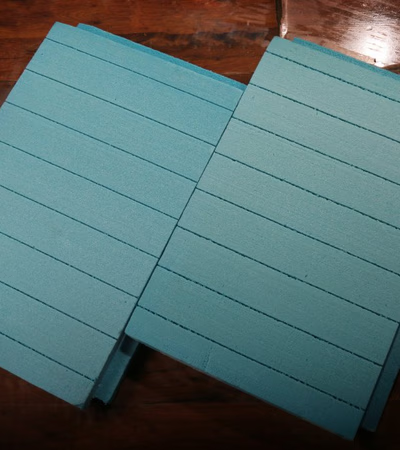 Iran
XPS Foam
Iran
XPS Foam
XPS thermal insulation foamDetails
-
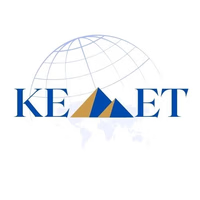 Kemet Export-Import 3 months ago
Kemet Export-Import 3 months ago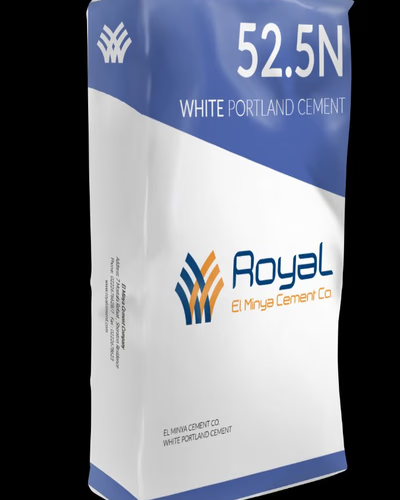 Egypt
Building Materials
Egypt
Building Materials
Kemet Import & Export owns its own factory in Egypt and is an exclusive agent for major cement and iron and steel factoriesDetails
-
 Mohammad Maatouk 3 months ago
Mohammad Maatouk 3 months ago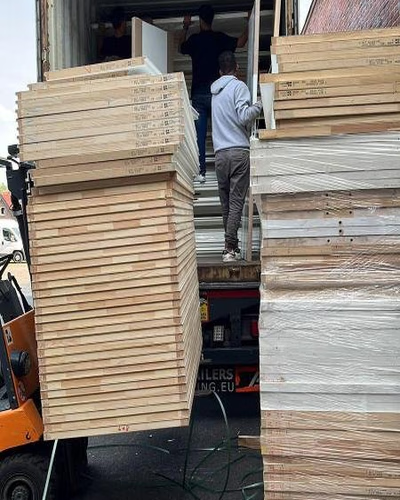 Lebanon
Wood
Lebanon
Wood
The products we work with are guaranteed 100% and are certified with trust and time.Details
-
 Kompani Shyvayi 3 months ago
Kompani Shyvayi 3 months ago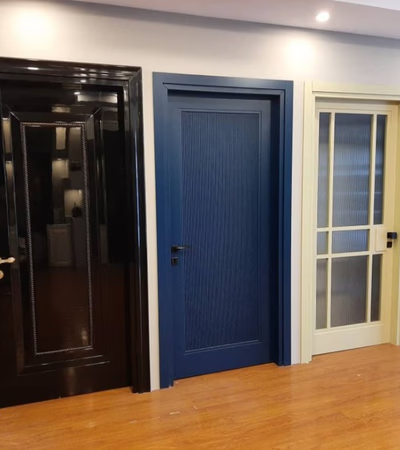 Iran
Scorpion venom, quality ceramic tiles, all kinds of construction doors, white and red apples
Iran
Scorpion venom, quality ceramic tiles, all kinds of construction doors, white and red apples
In the year, we are able to supply 2 liters of scorpion venom for medical purposes, we provide the highest quality tiles and ceramics with a wide vari...Details
-
 Mohammad Azadikhah 3 months ago
Mohammad Azadikhah 3 months ago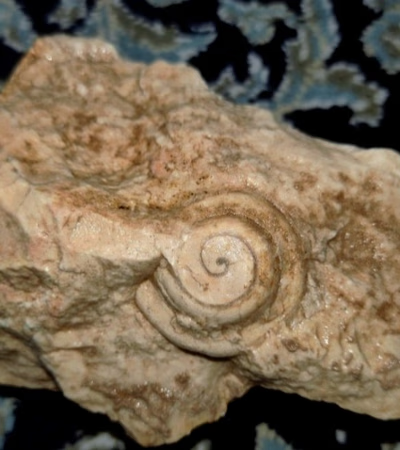 Iran
Snail Fossil at least 300 million years ago
Iran
Snail Fossil at least 300 million years ago
Snail fossil dating back at least 300 million years agoDetails
-
 İnşaat Kalıbı 3 months ago
İnşaat Kalıbı 3 months ago Turkey
Lumber
Turkey
Lumber
5x10 10x10 and wood is kiln-dried and ready for saleDetails
-
 Nabil Fayid 3 months ago
Nabil Fayid 3 months ago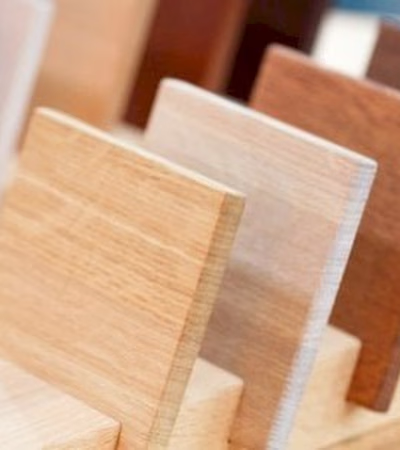 Kuwait
Timber
Kuwait
Timber
Raw semi-manufactured fertilization boards cut in different sizes, all typesDetails
-

 Turkey
Pasta flour cola pilaf tomato paste napkin children diapers
Turkey
Pasta flour cola pilaf tomato paste napkin children diapers
QualityDetails
-
Middle East Brick Trade Trends and Market Insights

The brick industry in the Middle East and West Asia is a pivotal part of the region"s construction and trade ecosystem. Bricks, made from materials like clay, sand, and lime, are foundational in construction due to their durability and versatility. The Middle Eastern brick market is witnessing significant growth, fueled by urbanization and infrastructure development. Key types of bricks, including clay bricks, concrete blocks, and ceramic tiles, play a central role in the construction of residential and industrial structures. Notably, trade codes such as 690100 and 690290 govern the import and export of bricks within West Asia. The trade dynamics in the region reveal an evolving marketplace. Verified exporters and importers leverage Middle East trade platforms to facilitate seamless transactions. Demand for bricks, alongside related construction materials like plaster, cement, and rebar, is driven by large-scale infrastructure projects.
Import and export trends show that countries in the Middle East are both major producers and consumers, reflecting a balanced trade relationship. For example, the export of clay-based bricks from countries like Saudi Arabia and the UAE is complemented by imports of specialized ceramic tiles and lightweight concrete blocks. Additionally, the rise of B2B marketplaces in Asia offers enhanced visibility for regional product listings, providing market insights and fostering business networking. Platforms like Aritral enable direct communication and AI-powered marketing to connect suppliers with global buyers. This is particularly crucial for commodities like bricks, which require reliable supply chain solutions to meet project timelines. As the construction boom continues in this region, the brick market is poised for sustained growth, underpinned by robust trade partnerships and technological advancements in manufacturing. "
-
West Asia Cement Industry and Regional Trade Trends
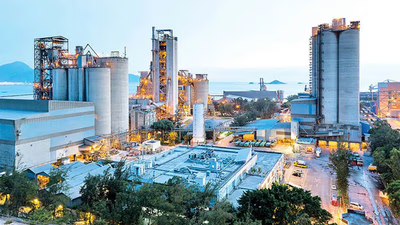
The cement industry plays a pivotal role in shaping the construction and infrastructure sectors across West Asia and the Middle East. Cement, a key material in building and construction, is highly demanded in the region due to rapid urbanization and large-scale infrastructure projects. The West Asian cement market is both a significant consumer and exporter, with countries in the Middle East exporting cement to global markets, driven by surplus production and competitive pricing. Middle Eastern cement consumption is fueled by increasing construction activities, including residential, commercial, and industrial developments. In addition to cement, related construction materials such as plaster, sand, clay, wood, ceramic tiles, and lime are integral to the regional construction supply chain. The Asian Gypsum Plaster Market is thriving, with large-scale gypsum industries producing boards and plaster products for regional and export needs. Similarly, the demand for sand in West Asia remains robust, with a well-established trade network connecting buyers and sellers across the Middle East and Asia. Timber and raw wood also hold a vital place, with imports and exports ensuring supply for diverse applications, from structural beams to interior finishes.
Innovative advancements like high-tech cement and clinker are reshaping the future of the cement industry globally, with sustainable and performance-enhancing products gaining traction. As demand grows, regional B2B marketplaces and trade platforms are providing verified exporters and importers with tools for business networking, market insights, and supply chain solutions. Platforms like Aritral facilitate direct communication, product listings, and AI-powered marketing to streamline trade operations. With the Middle East emerging as a hub for commodities like cement, glass, bricks, and concrete blocks, the region"s economic vitality continues to attract global attention. The West Asian brick trade, for example, reflects the construction boom, with trends pointing toward increased imports and exports across regional markets. The future of these industries will likely hinge on sustainable practices, technological innovations, and robust trade ecosystems. "
-
Exploring the Ceramic Tile Trade in Middle East and Asia
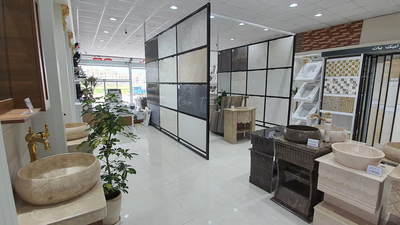
Ceramic tiles, a cornerstone in global construction materials, have seen increasing demand across the Middle East and West Asia due to their durability, aesthetic appeal, and wide application. The Asian ceramic tile market, including HS codes like 690490, 690510, 690790, and 690890, plays a pivotal role in supplying tiles to these regions. Ceramic tiles are used extensively in residential, commercial, and industrial projects, providing benefits such as fire resistance, easy cleaning, and aesthetic versatility. The Middle East trade platform has enabled streamlined buying and selling of ceramic tiles, connecting verified exporters and importers through B2B marketplaces. Industry players leverage these platforms for regional product listings, market insights, and business networking to meet demand efficiently. Countries in West Asia, such as Saudi Arabia, UAE, and Qatar, are major importers of ceramic tiles, driven by booming construction activities. Supply chain solutions in Asia focus on optimizing ceramic tile production and distribution. Notable trends include increasing exports from India and China, which dominate production due to advanced manufacturing facilities and cost-effective pricing.
Additionally, regional trade advertising platforms are promoting ceramic tiles alongside complementary materials like cement, plaster, sand, and glass. The import-export dynamics in the West Asian ceramic tile market reflect broader construction trends, including urbanization and infrastructure development. Verified suppliers and buyers ensure quality and compliance, while competitive pricing remains a key factor in market success. Platforms such as Aritral provide AI-driven tools to simplify trade processes and expand global sales opportunities for ceramic tile manufacturers. By fostering direct communication and profile management, these platforms enhance the efficiency of commodity trade in the Middle East and West Asia.
-
Middle East Clay Market and Trade Dynamics
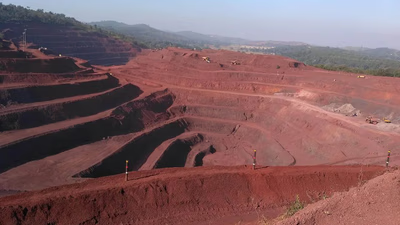
Clay, a vital construction material, plays a key role in Middle East and West Asian markets, underpinned by its critical applications in ceramics, bricks, and cement production. With demand surging due to expanding infrastructure projects, the Middle East clay market is witnessing robust growth. The region"s verified B2B platforms streamline clay trade by connecting reliable exporters and importers, facilitating cross-border transactions. In West Asia, clay is extensively traded as a raw material for ceramic tiles, a booming industry driven by urbanization. Countries like the UAE and Saudi Arabia are large importers of high-quality clay, while Asian exporters, including India and China, dominate supply channels. These trade dynamics emphasize the importance of supply chain solutions and market insights to navigate challenges like fluctuating prices and transport logistics. Types of clay, such as kaolin and bentonite, cater to diverse applications, including construction, ceramics, and industrial use. Verified exporters and importers leverage platforms listing regional products to target niche demand.
Beyond clay, related materials like plaster, sand, and timber also show synergies in the Middle East market, underpinning construction trends. The popularity of clay-based products, particularly bricks and ceramic tiles, has significantly shaped the construction industry in West Asia. Key benefits of clay include its durability, thermal insulation, and eco-friendly properties. However, challenges like environmental impact and sourcing quality clay remain critical concerns. Aritral, an AI-driven B2B platform, simplifies commodity trade by offering product listing, verified contact networks, and AI-powered marketing. Businesses in the clay trade can leverage Aritral to tap into evolving market demands and enhance their cross-border operations. "
-
Global Trade Insights: Lightweight Concrete Block Market in Asia and Middle East
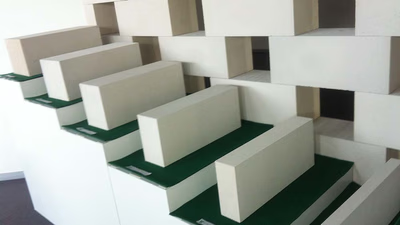
The Middle East and West Asia are pivotal regions in the global trade of construction materials, including concrete blocks. Lightweight concrete blocks, such as AAC (autoclaved aerated concrete) and ACB (autoclaved concrete blocks), are gaining prominence due to their eco-friendly properties and structural efficiency. Regional demand for these materials has surged, driven by urbanization, infrastructure growth, and green building initiatives. Verified B2B marketplaces in Asia are instrumental in connecting importers and exporters, ensuring compliance with international standards like HS codes 681011, 681019, and 690100. These platforms enable direct communication, fostering trust and transparency in transactions. Market trends indicate an increase in lightweight concrete block exports from West Asia, particularly to South Asia and East Africa, where demand for durable yet lightweight construction materials remains high. Beyond concrete blocks, related commodities such as plaster, sand, timber, and lime play significant roles in regional supply chains. The Asian gypsum plaster market, for instance, has seen growth due to its application in modern construction.
Similarly, sand trade in West Asia is evolving, with verified suppliers meeting stringent quality standards. Timber and glass, essential for construction, are also actively traded across regional markets. The marketing and export of lightweight concrete blocks and related materials require robust supply chain solutions, advanced trade advertising platforms, and reliable insights into market dynamics. Aritral, an AI-driven B2B trade platform, simplifies global sales assistance, profile management, and product listings for verified exporters and importers in these sectors, ensuring streamlined operations in the competitive Middle Eastern and Asian markets.
-
Glass Trade Dynamics in West Asia and Middle East

The glass industry in West Asia and the Middle East is witnessing significant growth, driven by increasing demand in construction, packaging, and automotive sectors. Glass, along with other building materials like plaster, sand, wood, lime, and cement, plays a pivotal role in shaping regional infrastructure projects. As urbanization accelerates, particularly in developing economies, verified exporters and importers are leveraging trade platforms and B2B marketplaces to streamline supply chains and meet growing demands. The Asian glass market, which includes products such as tempered, laminated, and float glass, is becoming a key source for Middle Eastern buyers. Categories like 700100 (glass cullet), 700231 (glass in sheets), and 700521 (glassware) are central to regional trade. Verified suppliers on platforms like Aritral facilitate direct communication and market insights for import/export activities, ensuring transparency and efficiency. Glass trade and marketing in the Middle East also intersect with other construction materials, highlighting the importance of supply chain solutions to meet large-scale project requirements. Beyond glass, materials like rebar and beams, bricks, ceramic tiles, and concrete blocks are essential to regional construction trends, with a growing focus on lightweight and eco-friendly products.
Efforts to expand trade networks and enhance business networking opportunities are enabling smoother transactions between buyers and sellers. For instance, connecting with Asian glass suppliers through verified B2B platforms fosters reliability and trust in cross-border trade. Market insights and advertising platforms further aid businesses in making informed decisions, while regional product listings improve visibility and accessibility. Aritral, an AI-powered trade platform, simplifies the buying and selling process for commodities like glass, offering tools like profile management, global sales assistance, and AI-driven marketing solutions. With its focus on verified listings and direct communication, Aritral is helping businesses capitalize on the economic potential of Middle Eastern and West Asian trade corridors.
-
Plaster in Construction Trade: Trends in West Asia and Middle East
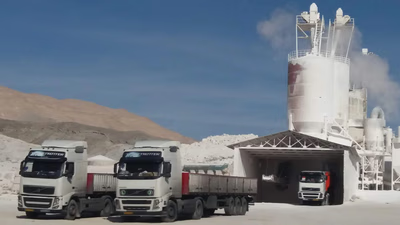
Plaster, a cornerstone material in the construction industry, plays a pivotal role in West Asia’s growing infrastructure and trade ecosystem. Derived primarily from gypsum, plaster is widely used as a building material, with applications ranging from wall coatings to decorative finishes. The Asian Gypsum Plaster Market is witnessing significant growth due to rising construction activities, particularly in the Middle East, where urbanization and infrastructure projects are booming. Plaster of Paris (POP), a key derivative of gypsum, is highly sought after in West Asia for its quick-setting properties and versatility in architectural moldings and surface finishing. West Asia"s trade platforms, such as B2B marketplaces, are driving the expansion of verified plaster suppliers and import/export partnerships. These platforms facilitate the listing of regional products, including plaster, sand, lime, and other construction materials like bricks, cement, and ceramic tiles. The integration of AI-powered solutions on trade platforms streamlines supply chain management and connects verified exporters and importers, enhancing market transparency. The demand for high-quality plaster has also spurred the development of gypsum board and plaster manufacturing industries in Asia.
With increasing preferences for lightweight and sustainable construction materials, gypsum plaster is becoming a preferred choice over traditional materials like clay and concrete blocks. Additionally, the import and export of other complementary materials, such as sand, lime, and timber, are crucial for the construction sector in the Middle East and West Asia. As a trade advertising platform, tools like Aritral provide valuable market insights, promoting business networking and facilitating cross-border commerce. By connecting regional traders and providing verified supplier profiles, these platforms are reshaping the dynamics of the construction materials trade in Asia and the Middle East. "
-
Rebar and Beam Trade in West Asia and Middle East
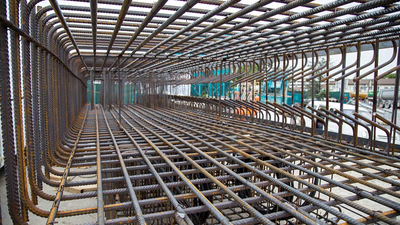
The construction materials market in the Middle East and West Asia is undergoing significant transformation, driven by innovative B2B platforms and the evolving dynamics of supply chains. Among the standout materials are rebar and beam, which form the backbone of structural steel trade in the region. The demand for these materials is increasing due to rising infrastructure projects, urbanization, and government-led construction initiatives. Verified exporters and importers across the Middle East and Asia are leveraging platforms to streamline the trade of rebar and beams, ensuring compliance and quality. Plaster, another key material, is playing a transformative role in West Asia"s construction sector. Gypsum-based plaster, including Plaster of Paris, has witnessed a surge in demand due to its application in modern interiors and energy-efficient constructions. Verified suppliers and market insights are critical for traders to navigate this growing sector. The sand trade in the Middle East is equally dynamic, with imports and exports driven by high demand for construction-grade sand.
Similarly, the wood and timber market has shown robust activity, as raw materials continue to flow into developing urban areas. Lime, a staple in construction, is shaping trade trends with its pivotal role in cement production and soil stabilization. Other materials like glass, bricks, ceramic tiles, and lightweight concrete blocks are also gaining prominence, supported by regional B2B marketplaces that facilitate trade transparency and efficiency. The structural steel export market is particularly noteworthy, as rebar and beams dominate imports and exports. West Asia"s verified B2B networks ensure seamless transactions and market insights, enabling businesses to meet regional demands. Aritral, an AI-driven trade platform, is optimizing supply chains and connecting global entities through product listing, direct communication, and AI-powered marketing, fostering a more efficient trade environment for commodities like structural steel, plaster, and other construction essentials.
-
Insights into the Sand Trade in West Asia and Middle East

Sand, a vital construction material, plays a central role in the trade dynamics of West Asia and the Middle East. Its applications span across infrastructure development, from concrete production to manufacturing glass, bricks, and ceramic tiles. The annual global consumption of sand is estimated to be 50 billion tons, driven heavily by the construction industry. In the Middle East, where rapid urbanization and infrastructure projects are booming, sand is a highly demanded commodity. This demand has led to substantial import and export activities, with verified buyers and sellers leveraging B2B marketplaces to streamline transactions. The Asian sand market is particularly robust, with West Asia acting as a critical trade hub. Importers from the Middle East often rely on regional trade platforms to connect with suppliers offering various types of sand, including silica, river sand, and fine aggregates. Verified exporters ensure quality while addressing logistical challenges through advanced supply chain solutions.
Platforms like Aritral assist stakeholders by providing market insights, direct communication tools, and regional product listings, making transactions efficient and transparent. Sand’s significance extends beyond construction. It is used in glass production, cement manufacturing, and as a filler in plaster and paints, further solidifying its importance in the commodity trade. With increasing environmental concerns about sand mining, the industry is exploring sustainable sourcing and innovative trade solutions. Verified B2B platforms are critical in ensuring compliance with regulations and fostering collaboration among sand buyers and sellers. West Asia’s sand trade reflects broader construction material trends, including plaster, lime, ceramic tiles, and concrete blocks. These materials collectively support the region"s infrastructure evolution, driven by urban expansion and modernization efforts. By leveraging advanced trade advertising platforms and business networking tools, regional stakeholders continue to optimize their supply chains for sustainable growth. "
-
Lime Trade in West Asia: Market Trends and Insights
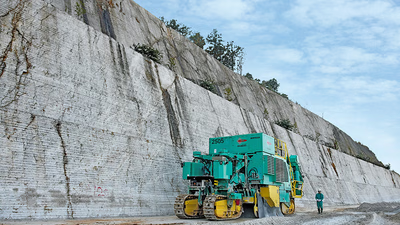
Lime, a versatile construction material, plays a pivotal role in West Asia"s growing building sector. As demand for infrastructure development surges in the region, lime has become a critical commodity, particularly for industries like plaster, cement, and ceramics. West Asian countries, with their abundant mineral deposits, are emerging as key suppliers and exporters of high-quality lime. Verified exporters and importers facilitated by B2B marketplaces are streamlining trade dynamics, ensuring quality and transparency across the supply chain. The lime trade in West Asia thrives on its integration with other building materials such as sand, bricks, and concrete blocks, which are essential for the construction boom in the Middle East. Platforms like Aritral enable businesses to leverage regional product listings, market insights, and direct communication tools for efficient sourcing and sales. Verified suppliers ensure that lime meets industry standards, strengthening confidence among buyers globally. West Asia"s lime market is also shaped by its proximity to other major markets in Asia, enabling smooth import/export processes.
Countries like the UAE and Saudi Arabia lead in lime consumption, driven by urbanization and large-scale construction projects. The supply chain solutions offered by regional trade platforms further enhance the efficiency of managing lime-related transactions, from marketing to distribution. Besides lime, the region"s focus on complementary construction materials — plaster, sand, wood, glass, rebar, and beams — highlights the interconnected nature of the commodity trade. By analyzing market trends and leveraging AI-driven tools, businesses in West Asia can maximize their reach and profitability. The lime trade"s integration with verified B2B platforms is fostering sustainable and transparent trade practices, ensuring continued growth in the Middle Eastern construction industry.
-
Middle East Paint Trade Insights: Construction Paint Market Trends

The construction materials trade in West Asia and the Middle East is experiencing dynamic growth, particularly in the paint sector, driven by regional infrastructure projects and urbanization. The Asian construction paints market is vibrant, offering a vast array of choices, including all types of colors tailored for diverse construction needs. Verified exporters and importers play a pivotal role in ensuring quality and compliance in the import/export of building paints. This trade is facilitated by B2B marketplaces, which provide regional product listings and market insights essential for navigating the sector’s complexities. The Middle East’s burgeoning construction industry has amplified demand for building paints, ranging from standard to specialized formulations. Key players in the industry include the world’s largest manufacturers and exporters, who leverage supply chain solutions to meet regional needs. Marketing and trading of construction paints in the Middle East are increasingly tied to digital platforms like Aritral, which simplify trade through AI-driven product listings, global sales assistance, and direct communication tools. In addition to paints, construction materials like plaster, sand, wood and timber, lime, glass, rebar and beam, brick, cement, ceramic tiles, clay, and concrete blocks are critical for West Asia’s infrastructure growth.
For instance, the Asian Gypsum Plaster Market supports the plaster trade, while verified suppliers dominate the sand import/export sector. Similarly, timber and lime trade trends showcase their importance across supply chains in the construction sector. Glass, rebar, bricks, and cement are shaping construction dynamics through robust trade networks powered by platforms offering efficient marketing and export solutions. The paint sector, however, remains a standout due to its versatility and role in architectural aesthetics and durability. Investigating supply and demand trends in West Asian countries reveals significant opportunities for exporters, particularly in lightweight concrete blocks and ceramic tiles, which complement the building paint sector. Aritral’s AI-powered platform ensures smooth navigation of these trade dynamics, aligning with global business growth.
-
Dynamic Trade Trends in Wood and Construction Materials in West Asia
The construction materials trade in West Asia and the Middle East is witnessing a dynamic shift, fueled by increasing demand for essential commodities like wood, timber, plaster, sand, lime, and glass. Among them, the wood and timber market has become a cornerstone of construction and furniture manufacturing. The raw wood trade, particularly encompassing HS codes 440110 to 440500, is thriving due to growing urbanization and infrastructure projects in countries like the UAE, Saudi Arabia, and Turkey. Verified exporters and importers, leveraging B2B platforms, are streamlining supply chains to meet the demand for high-quality timber products. Plaster, specifically gypsum-based products like Plaster of Paris, is another critical material shaping West Asia"s construction industry. Its lightweight and cost-effective properties make it an essential component in infrastructure development. Similarly, sand and lime play irreplaceable roles in construction, with verified suppliers ensuring steady availability for projects ranging from residential complexes to megastructures. Structural materials like rebar, beams, bricks, cement, and concrete blocks are gaining traction as the backbone of West Asia’s booming construction sector.
Lightweight concrete blocks, in particular, are becoming a sustainable choice for modern building designs. The ceramic tile market is also expanding, with increasing exports to European and Asian markets reflecting its aesthetic and functional appeal. Glass, another key commodity, is undergoing transformation with the aid of B2B trade platforms that connect regional suppliers with global buyers. Verified listings are ensuring transparency and efficiency in the market. Aritral, an AI-driven B2B platform, simplifies the trading process for these commodities, offering product listings, direct communication, and AI-powered marketing solutions. By facilitating connections between verified suppliers and buyers, Aritral enhances market transparency and efficiency across the Middle East and West Asia. "
-
Investigating the supply and demand situation of wood and timber in the world
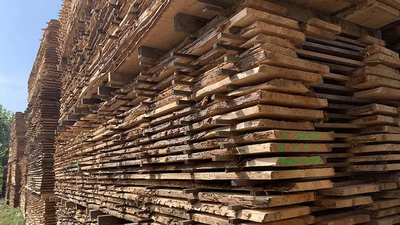
The global wood and timber market has seen substantial growth driven by population increases, construction demands, and rising wood product needs, particularly in developing nations. Major producers include Canada, Russia, the United States, Brazil, and Indonesia, which supply a variety of wood types to international markets. Conversely, China, the U. S. , Japan, and South Korea are the largest consumers due to their industrial requirements. Popular products include wooden furniture and flooring, with chipboard and MDF gaining traction for their affordability and versatility. Thermowood is also emerging as a preferred choice due to its durability against environmental factors. However, the market faces challenges such as fluctuating prices influenced by raw material costs and international competition from countries with extensive resources.
Sustainable practices are increasingly necessary to combat illegal logging and environmental degradation. Countries like Canada and Brazil play pivotal roles in exports to major markets like the U. S. and China. The timber industry must navigate varying regulations that can impact production and trade.
-
The best-selling types of wood and lumber in the city market
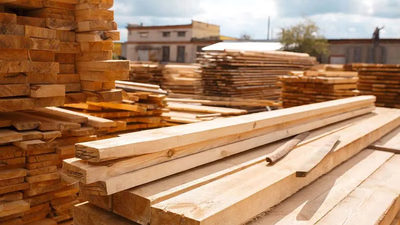
Wood trade is crucial for countries to meet their wood needs, with major exporters including Canada, Russia, and the U. S. , while China and India are significant importers. Various wood types like cherry, walnut, pine, oak, teak, mahogany, and cedar are popular for their unique characteristics and applications in furniture and construction. The international timber trade faces challenges from environmental regulations aimed at preventing illegal logging and promoting sustainable practices. The demand for specific woods varies based on their properties; for instance, teak is favored for outdoor use due to its resistance to water and insects. Additionally, the illegal timber trade poses threats to biodiversity and indigenous communities. Countries are increasingly adopting stricter regulations to combat illegal logging while promoting the use of legally sourced wood through organizations like the Forest Stewardship Council (FSC). Despite these efforts, challenges remain in ensuring sustainability within the wood supply chain as construction demands continue to rise.
-
The principles of exporting and selling wood in world markets
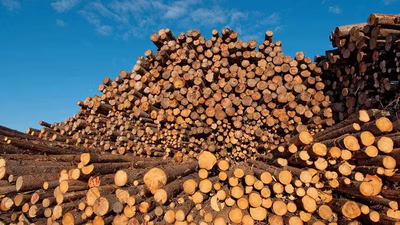
Exporting wood requires adherence to global market demands, focusing on specific types such as hardwood and softwood. Proper sizing, moisture control, and secure packaging are essential to maintain quality during transport. Effective marketing strategies are crucial for timber exporters to reach target customers and enhance competitiveness. Compliance with standards like FSC is necessary for sustainable practices. Wood processing techniques can improve aesthetic appeal and physical properties, increasing marketability. Countries like Canada, Germany, Japan, the USA, Sweden, and Italy lead in advanced wood processing technologies, offering innovative solutions that enhance product quality and durability. By utilizing these technologies, exporters can cater to diverse customer needs while ensuring compliance with environmental standards.
-
A guide to the marketing and export of wood and timber in West Asian countries
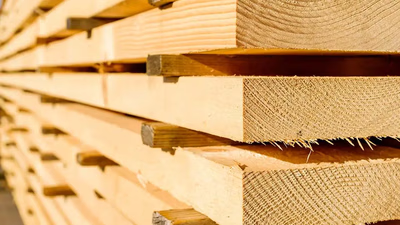
The timber market in West Asia, particularly in Saudi Arabia, the UAE, Oman, Qatar, and Iraq, is experiencing significant growth driven by construction and urban development. Each country has unique demands for wood products due to their respective construction needs. To successfully enter this market, businesses must conduct thorough research on local trends, regulations, and competitors. Establishing connections with key industry players through exhibitions and conferences is crucial. Compliance with export laws and environmental standards is essential for building trust with customers. A strong marketing strategy that includes social media and local advertising can enhance brand awareness. Long-term business relationships are vital for securing contracts and expanding opportunities. Additionally, understanding the dual role of Middle Eastern countries as both importers and exporters of timber is important; while some nations rely on imports due to limited resources, others like Turkey and Oman are prominent exporters due to their abundant wood resources. Overall, quality products tailored to local standards can help businesses stand out in a competitive market.

























